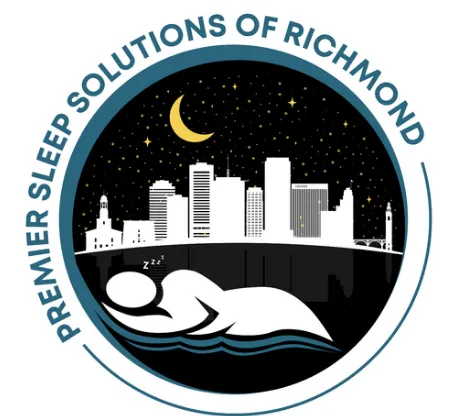SERVING RICHMOND AND SURROUNDING AREAS
SNORING TREATMENT
Snoring occurs when airflow is blocked or restricted, causing tissues in the airway to vibrate and produce sound. While snoring on its own is usually considered a harmless – albeit highly disruptive – phenomenon, for some people it indicates a more serious underlying medical condition or sleep disorder.
SERVING RICHMOND AND SURROUNDING AREAS
SNORING TREATMENT
Snoring occurs when airflow is blocked or restricted, causing tissues in the airway to vibrate and produce sound. While snoring on its own is usually considered a harmless – albeit highly disruptive – phenomenon, for some people it indicates a more serious underlying medical condition or sleep disorder.
SNORING
SNORING IS VERY COMMON
If you or a loved one snores, you're not alone.
Here are the facts:
Snoring affects approximately 45% of adults occasionally and 25% habitually.
Men are more likely to snore than women, with a ratio of 2:1.
Snoring tends to increase with age, peaking in middle age.
Obesity is a significant risk factor for snoring.
Smoking and alcohol consumption can exacerbate snoring.
Nasal congestion, allergies, and sinus problems contribute to snoring.
Sleeping position can influence snoring intensity.
Chronic snoring may indicate obstructive sleep apnea, a serious sleep disorder.
Snoring can disrupt sleep quality for both the snorer and their partner.
Effective conservative treatment options are available, including lifestyle changes and oral appliances for managing snoring.
WHAT CAUSES SNORING?
Snoring is caused by the vibration of tissues in the throat and nasal passages when airflow is partially obstructed during sleep. Contributing factors include:
Relaxation of throat muscles
Obstructed nasal airways
Tongue position
Obesity
Alcohol and sedatives
Sleep position
Aging
Smoking
Sleep apnea
Anatomical factors
Determining the exact cause of snoring can be challenging, but it's essential not to overlook it. Individuals experiencing snoring should take a sleep test to rule out sleep apnea.
At Sleep Better Breathe Better Denver, we offer convenient, accurate, and affordable at home sleep tests. You no longer need to spend the night in the hospital or at a sleep lab!
Don't put yourself at risk for one more night. Get tested today!
SNORING
SNORING IS VERY COMMON
If you or a loved one snores, you're not alone. Here are the facts:
Snoring affects approximately 45% of adults occasionally and 25% habitually.
Men are more likely to snore than women, with a ratio of 2:1.
Snoring tends to increase with age, peaking in middle age.
Obesity is a significant risk factor for snoring.
Smoking and alcohol consumption can exacerbate snoring.
Nasal congestion, allergies, and sinus problems contribute to snoring.
Sleeping position can influence snoring intensity.
Chronic snoring may indicate obstructive sleep apnea, a serious sleep disorder.
Snoring can disrupt sleep quality for both the snorer and their partner.
Effective conservative treatment options are available, including lifestyle changes and oral appliances for managing snoring.

SNORING
SNORING IS VERY COMMON
If you or a loved one snores, you're not alone. Here are the facts:
Snoring affects approximately 45% of adults occasionally and 25% habitually.
Men are more likely to snore than women, with a ratio of 2:1.
Snoring tends to increase with age, peaking in middle age.
Obesity is a significant risk factor for snoring.
Smoking and alcohol consumption can exacerbate snoring.
Nasal congestion, allergies, and sinus problems contribute to snoring.
Sleeping position can influence snoring intensity.
Chronic snoring may indicate obstructive sleep apnea, a serious sleep disorder.
Snoring can disrupt sleep quality for both the snorer and their partner.
Effective conservative treatment options are available, including lifestyle changes and oral appliances for managing snoring.
WHAT CAUSES SNORING?
Snoring is caused by the vibration of tissues in the throat and nasal passages when airflow is partially obstructed during sleep. Contributing factors include:
Relaxation of throat muscles
Obstructed nasal airways
Tongue position
Obesity
Alcohol and sedatives
Sleep position
Aging
Smoking
Sleep apnea
Anatomical factors
Determining the exact cause of snoring can be challenging, but it's essential not to overlook it. Individuals experiencing snoring should take a sleep test to rule out sleep apnea.
At Premier Sleep Solutions of Richmond, we offer convenient, accurate, and affordable at home sleep tests. You no longer need to spend the night in the hospital or at a sleep lab!
Don't put yourself at risk for one more night. Get tested today!
SNORING & HEALTH
SNORING CAN HAVE SERIOUS HEALTH CONSEQUENCES
Although snoring may appear harmless, it can impact your health negatively. Consequences include:
Daytime fatigue
Increased risk of cardiovascular diseases
Impaired cognitive function
Irritability
Decreased quality of sleep
Straining personal relationships with bed partners
Contributing to high blood pressure and heart disease
Increasing the risk of stroke
Worsening the symptoms of asthma

TREATMENT
CONSERVATIVE TREATMENTS FOR SNORING
Various snoring treatment options are available, and the most suitable choice depends on the cause and severity of your snoring. Some conservative treatment options include:
Lifestyle Changes:
Making lifestyle changes such as such as weight loss and avoiding alcohol before bedtime can significantly reduce snoring.
Positional Therapy:
Changing sleep positions to encourage better airflow help. Studies show that sleeping on your side instead of your back can help reduce snoring.
Nasal strips:
Nasal strips or nasal dilators to improve nasal breathing can help with airflow and reduce snoring. Nasal strips and nasal dilators are often used in conjunction with Oral Appliance Therapy for the best results.
Oral Appliances:
Oral appliances, such as mandibular advancement devices, reposition the jaw and tongue during sleep, and help keep the airway open. This reduces the incidence of snoring.
ALL SNORING SHOULD BE EVALUATED... HERE'S WHY:
If you or a loved one is dealing with snoring issues, we can help.
All instances of snoring should be thoroughly checked out, as even seemingly harmless snoring can sometimes be a sign of underlying health issues like sleep apnea.
Undiagnosed sleep apnea can significantly increase the risk of heart attacks and strokes, among other serious health complications. Therefore, addressing snoring promptly is crucial to safeguarding your overall health and reducing the risk of potentially life-threatening conditions.
At Premier Sleep Solutions of Richmond, we use the ResMed at-home sleep test to assess your snoring, to identify any underlying issues if they're present, and to rule out sleep apnea.
Once we have the results of your sleep test and diagnosis, we can decide which treatment option would be best for your particular situation.
ORAL DEVICE THERAPY MAY BE RIGHT FOR YOU.
Oral device therapy is a good option for patients with sleep apnea.
Contact us today to learn more about this treatment option and get started on the path to better sleep and improved health.
Premier Sleep Solutions of Richmond
Sarah Wilmer, DDS
27 Briggs Drive
Manakin-Sabot, VA 23103
(804) 784-2386

